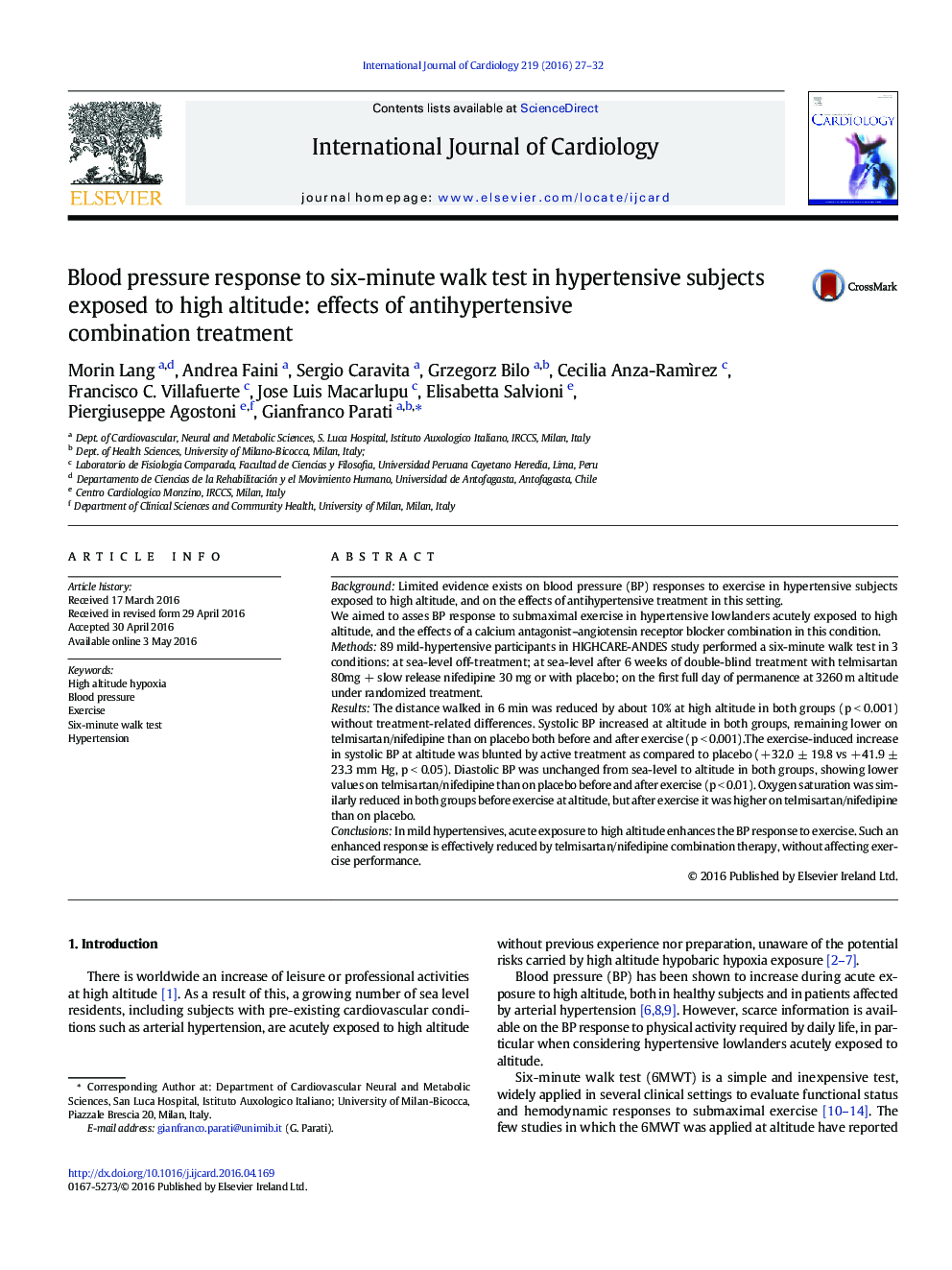| Article ID | Journal | Published Year | Pages | File Type |
|---|---|---|---|---|
| 5963612 | International Journal of Cardiology | 2016 | 6 Pages |
ABSTRACTBackgroundLimited evidence exists on blood pressure (BP) responses to exercise in hypertensive subjects exposed to high altitude, and on the effects of antihypertensive treatment in this setting.We aimed to asses BP response to submaximal exercise in hypertensive lowlanders acutely exposed to high altitude, and the effects of a calcium antagonist-angiotensin receptor blocker combination in this condition.Methods89 mild-hypertensive participants in HIGHCARE-ANDES study performed a six-minute walk test in 3 conditions: at sea-level off-treatment; at sea-level after 6 weeks of double-blind treatment with telmisartan 80mg + slow release nifedipine 30 mg or with placebo; on the first full day of permanence at 3260 m altitude under randomized treatment.ResultsThe distance walked in 6 min was reduced by about 10% at high altitude in both groups (p < 0.001) without treatment-related differences. Systolic BP increased at altitude in both groups, remaining lower on telmisartan/nifedipine than on placebo both before and after exercise (p < 0.001).The exercise-induced increase in systolic BP at altitude was blunted by active treatment as compared to placebo (+ 32.0 ± 19.8 vs + 41.9 ± 23.3 mm Hg, p < 0.05). Diastolic BP was unchanged from sea-level to altitude in both groups, showing lower values on telmisartan/nifedipine than on placebo before and after exercise (p < 0.01). Oxygen saturation was similarly reduced in both groups before exercise at altitude, but after exercise it was higher on telmisartan/nifedipine than on placebo.ConclusionsIn mild hypertensives, acute exposure to high altitude enhances the BP response to exercise. Such an enhanced response is effectively reduced by telmisartan/nifedipine combination therapy, without affecting exercise performance.
